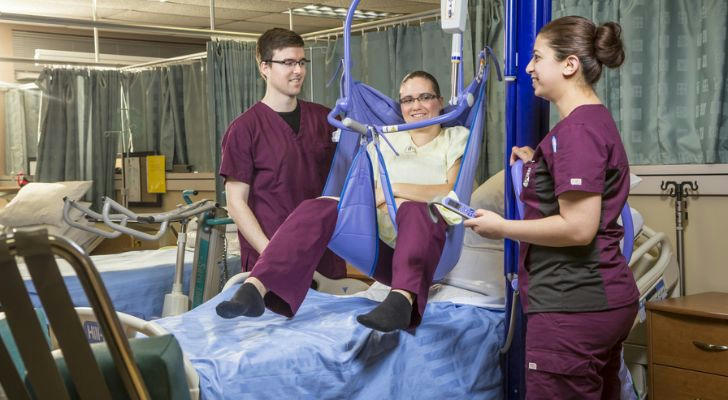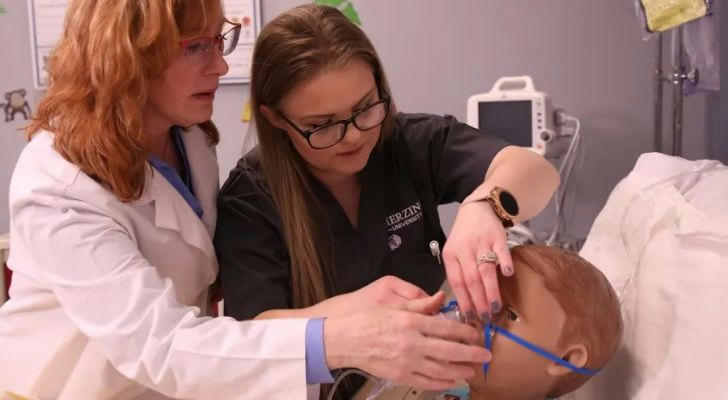Why Choose to Become a Licensed Practical Nurse (LPN)? — A Career Path for Those in Need
With the rapid growth of the U.S. healthcare industry, especially in the context of an aging society, the demand for nursing professionals is increasing day by day. Many people may be facing career changes or employment challenges, and the profession of Licensed Practical Nurse (LPN) offers an attractive opportunity for those looking to enter the healthcare industry and improve their living conditions.
According to the U.S. Bureau of Labor Statistics (BLS), the demand for LPNs is expected to grow by 6% from 2021 to 2031, a rate that exceeds most other professions. This means that whether you’re looking for a stable job, hoping to enter a promising industry, or want to help others, becoming an LPN is an option worth considering.
This article will provide an in-depth look at the career prospects of LPNs, especially for those who may be facing economic pressures, are looking to change careers, or hope to improve their work-life balance by entering the LPN field.

Why LPN Careers Are Attractive to Job Seekers
1. Opportunities for Low-Income Individuals
For many people from low-income families, entering a stable, higher-paying career is key to improving their living conditions. The average annual salary for LPNs is $51,850, which is higher than the starting salary in many other industries. In many healthcare institutions and long-term care facilities, LPNs can earn even higher salaries. For those who need a stable income source, LPN is undeniably an appealing choice.
Additionally, LPN positions offer flexible work schedules, including night shifts and part-time roles, which are ideal for those with family care responsibilities or other obligations.
2. A Great Career Change Option
Many people are looking to change their career paths, especially those who want to transition from their current profession to one with more growth potential. LPN programs typically take 12 to 18 months to complete, making it a quicker option compared to degree programs that require a longer time commitment. Many people, especially those coming from retail, hospitality, or other industries, have successfully made the switch to healthcare by enrolling in LPN programs.
For those who want to enter the nursing field but do not wish to commit to a multi-year degree program, LPN is an excellent entry point. It serves as a bridge to the healthcare industry, allowing you to provide direct care to patients in hospitals, nursing homes, and clinics.
3. Opportunities to Advance Existing Skills
Many individuals who already work in healthcare-related roles, such as nursing assistants, may wish to advance their careers by earning an LPN certification. By upgrading from a nursing assistant role to an LPN, these individuals can expand their responsibilities, move into broader healthcare environments, and increase their earning potential.
After obtaining an LPN license, individuals can also continue their education to become a Registered Nurse (RN). For those who aspire to develop a long-term career in nursing, LPN serves as a strong foundation for advancing to higher-level positions.

Why Choose an LPN Program?
1. Flexible Learning Options
LPN programs are typically designed to be flexible, making it easier for busy adults to complete their studies. Programs offer both full-time and part-time options to accommodate students who are working or have family commitments. Many institutions also offer online or hybrid learning formats, where theoretical coursework can be completed online, and clinical practice is done in healthcare facilities.
For example, Herzing University provides such flexible learning formats, allowing students to choose their learning pace based on their individual schedules.
2. Government and Employer-Sponsored Training Opportunities
For those who face financial challenges or lack the resources to pay for tuition, government and employer-sponsored LPN training programs offer valuable opportunities. For instance, the Workforce Innovation and Opportunity Act (WIOA) provides funding to eligible applicants, helping them cover tuition costs. Many healthcare providers and nursing homes also offer employer-sponsored training programs, where applicants agree to work for the employer for a certain period after completing the program.
These training opportunities not only help alleviate the financial burden but also ensure that graduates have clear job opportunities upon completion. For example, companies like Genesis Healthcare and ProMedica offer tuition reimbursement programs that assist students in completing their studies and securing employment.
3. High Employment Rate After Graduation
LPN programs generally have a high employment rate, with many students quickly finding full-time jobs after completing the program and passing the NCLEX-PN exam. According to the National Council of State Boards of Nursing (NCSBN), over 85% of LPN graduates pass the NCLEX-PN exam. Additionally, the demand for LPNs in healthcare settings continues to rise, meaning that graduates are more likely to find employment with ease.

How to Apply for an LPN Program
Here are the typical steps to apply for an LPN program:
1. Choose the Right LPN Training Program
Select an LPN program that fits your location, study schedule, and budget. You can choose from community colleges, vocational schools, healthcare institutions, or online programs. Many programs offer flexible class schedules to accommodate students with different life rhythms.
2. Submit Your Application and Required Documents
Most LPN programs require applicants to meet the following criteria:
- Be at least 18 years old.
- Have a high school diploma or an equivalent GED (General Educational Development).
- Provide proof of identity, transcripts, and relevant health documents.
Some programs may also require you to take an entrance exam (such as the Test of Essential Academic Skills (TEAS)), which assesses your academic preparedness for the program.
3. Attend an Interview or Admission Assessment
Some programs require applicants to attend an interview to discuss their interest in the nursing field and career goals. This is an opportunity for you to express your passion for nursing and explain why you chose this career.
4. Apply for Financial Aid or Scholarships
If you have financial difficulties, you can apply for government funding programs like WIOA (Workforce Innovation and Opportunity Act), which offers financial assistance for eligible applicants. Many schools and employers also offer scholarships or tuition reimbursement programs to help reduce the cost of tuition.
5. Enroll and Begin Your Studies
Once accepted and all paperwork is completed, you will begin your LPN program. These programs typically include both classroom learning and clinical practice to help you acquire the necessary skills and prepare for the NCLEX-PN exam.

The Meaning of an LPN Program for Those Seeking a Better Life
1. Improved Work-Life Balance
LPN jobs typically offer flexible work environments, with many healthcare providers offering various shifts. This is ideal for those who need to care for family members or have other personal responsibilities. Many healthcare organizations also offer remote positions or the ability to adjust work hours based on individual needs.
2. Making a Difference and Achieving Career Fulfillment
Many people choose the LPN profession because they want to help others. In an aging society, the demand for healthcare services is increasing, and LPNs play a crucial role in providing care in hospitals, nursing homes, and home healthcare settings. Providing compassionate care to patients who need assistance brings significant job satisfaction and fulfillment.
Conclusion
If you’re looking for a promising and meaningful career, LPN is an option worth considering. Whether you want to improve your financial situation, seek a career change, or desire a job in healthcare, LPN programs offer strong support for achieving your goals.
If you're facing career challenges or personal pressures, becoming an LPN might be the key to changing your situation. Completing an LPN program and obtaining a license not only provides a stable income but also places you in a rewarding career that brings both challenges and satisfaction.
For more information on LPN programs, or to apply for government-funded training opportunities, you can visit CareerOneStop or contact your local workforce development agency. Take the first step toward becoming an LPN and embark on a brighter career path.
